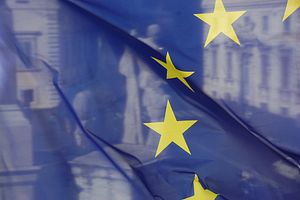Populist forces could undo the international trading system that has provided the measure of prosperity and peace afforded since 1945. Internal structural reforms and contingent events and factors (such as the idiosyncrasies or political skills of individual political leaders) will largely determine whether the global economy lives, dies, or thrives.
Invigorating Asia-Pacific trade could serve as an engine of economic growth for the global economy and, in particular, the European Union (EU). Indeed, the EU is already exploring free trade agreements with Japan and other Asia-Pacific economies. Less conventionally, the EU could also consider joining the Trans-Pacific Partnership (TPP) in place of the United States. An EU-TPP agreement – and one that earnestly sought to include the United States, China, India, and other economies – could deliver significant benefits for the global economy.
TPP and Other Trade Initiatives in Asia
President Donald Trump’s decision in January 2017 to break the United States’ TPP commitments to its 11 partners unsettled the Asia-Pacific trading system. As the United States accounted for over 50 percent of TPP-12’s GDP, a sans-U.S. TPP-11 will produce more limited (but still potentially significant) economic benefits. The remaining 11 TPP economies have decided, at least for now, to move ahead without the United States – unless, of course, indecision continues and talks continue to drag on.
TPP-11 is hardly the only trade agreement under consideration in the Asia-Pacific. The Regional Comprehensive Economic Partnership (RCEP) free trade agreement would comprise the Association of Southeast Asian Nations (ASEAN) as well as China, India, Japan, Australia, New Zealand, and South Korea. RCEP, while lacking certain environmental and labor protections contained in TPP, would cover nearly half of the individuals on the planet and approximately a quarter of world GDP. RCEP negotiations may conclude by the end of this year – unless, again, talks continue to drag on.
The EU-Japan FTA is another consequential free trade agreement under negotiation in the Asia-Pacific. Japan and the EU together account for approximately 30 percent of world GDP, and negotiations between the two sides have taken on a new urgency. While disputes over data have emerged as a major hurdle, the EU-Japan agreement may conclude by the end of this year – or not.
Given the TPP-11 and EU’s interests in ensuring a rules-based economic system and a stable global economy, why doesn’t the EU join the TPP, de facto swapping the United States for the EU in TPP negotiations? A few factors discourage the EU’s inclusion into TPP. First, the TPP was (informally, but not explicitly) designed for Asia-Pacific Economic Coooperation (APEC) member economies – which the EU is not. Second, each trading partner has limited bureaucratic resources: trade negotiators endure punishing schedules and cannot be in several places at once, meaning there might not be the bandwidth to take on another trade project of this scale. Third, domestic politics and geopolitical factors can complicate trade negotiations, especially for complex multilateral agreements. Fourth, it is unclear how the EU’s accession into TPP would affect EU-U.S. negotiations over the Transatlantic Trade and Investment Partnership (TTIP).
On the other hand, there is a certain logic to an EU-TPP FTA. First, an EU-TPP arrangement would produce significant economic benefits. Second, the EU’s economy already enjoys extensive connections to the Asia-Pacific – merchandise trade between the EU and the TPP-11 reached nearly 450 billion euros in 2016 ($502 billion), comprising 13 percent of the EU’s 2016 total merchandise trade. In addition to the proposed EU-Japan FTA, the EU already has FTAs in force with three TPP-11 economies — Canada, Singapore, and Vietnam — and it plans to open free trade discussions with Australia, Mexico, and New Zealand. Finally, an EU-TPP agreement could help ensure a rules-based system of global trade, facilitating standardized rules of the road while eliminating the bilateral patchwork of conflicting rules, tariffs, and procedures that economist Jagdish Bhagwati famously termed the “spaghetti bowl.”
An expanded, inclusive TPP should be open to all who meet its rigorous standards. It would be foolish and irresponsible to exclude China (and India) from acceding to the pact. China is not a liberal power, and the EU and China will continue to have serious disagreements about non-tariff trade barriers, state-owned enterprises, intellectual property, China’s attempts to coerce its neighbors, and human rights. Yet give credit where credit is due: China is playing a leadership role on the issues of climate change and global economic development. There are some signs that China is emerging as a responsible stakeholder in the international system.
Notably, China has played an increasingly constructive role in European affairs. As others have noted, China acted responsibly during the 2008 financial crisis, during the Eurozone crisis, in its opposition to Brexit, and, finally, through its recent expressions of support for a strong, united Europe. The EU should make every effort to responsibly deepen trade and investment ties with China.
Expanding trade and investment ties in the current environment will require thoughtful balancing. First, policymakers must pay attention to those that do not benefit from trade and attempt to compensate their losses with the overall gains from trade. Second, decisive leadership is essential. Japanese Prime Minister Shinzo Abe was able to rally Japan behind TPP, in part, because he argued for the agreement forcefully, relentlessly, and skillfully. Equivocation and half-measures will not save the world trade system. Trade agreements are complex, of course, but negotiations cannot drag on endlessly. The EU and the TPP-11 must find the most prudent course – whatever that is – and act.
Wang Mouzhou is the pen name of a former NSA intelligence officer. All articles reflect the former NSA intelligence officer’s personal opinions and do not reflect the views of NSA or the U.S. government.

































